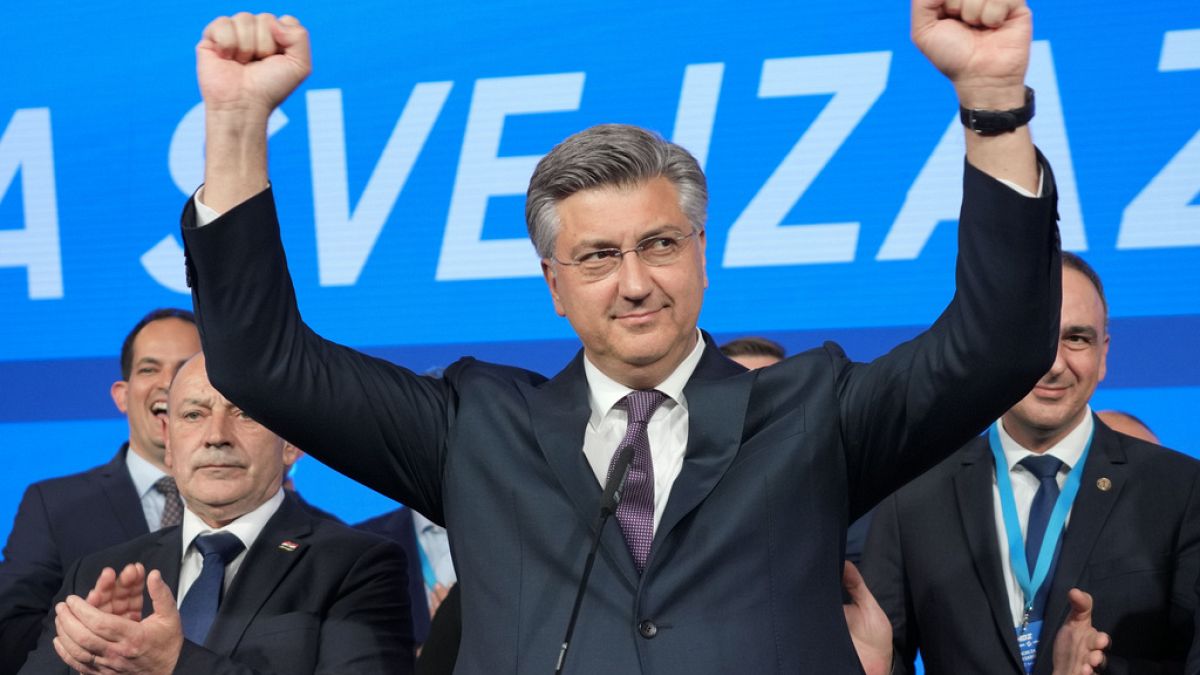In a significant move, Croatia’s ruling conservative party, the HDZ, has formed a coalition with a far-right nationalist party, the Homeland Movement, ahead of the upcoming European elections. This decision marks a notable shift towards the right in Croatian politics as the country prepares for key elections. The HDZ, which has been in power since 2016, lacked a clear majority following parliamentary elections, leading to weeks of political uncertainty. The alliance with the Homeland Movement, led by a mayor from a historically significant town, reflects a tough stance on contentious issues such as abortion and same-sex unions.
The Homeland Movement is a relatively new player in Croatian politics, comprised of radical nationalists and social conservatives who broke away from the centre-right HDZ. This coalition agreement raises concerns about the potential exclusion of minority groups in government representation, particularly as the DP objected to the inclusion of a party advocating for minority Serbs. The exclusion of such representation could potentially lead to increased ethnic tensions in the Balkan nation, a worry for many observers given Croatia’s history of conflict and division.
The HDZ has long been the dominant political force in Croatia, often associated with its wartime leader, Franjo Tuđman, who led the country to independence from Yugoslavia in the 1990s. However, in recent years, the party has faced allegations of corruption and mismanagement, tarnishing its reputation. Prime Minister Andrej Plenković, who is set to lead the new government, is also a candidate in the upcoming European elections. His decision to run for a seat in the European Parliament has fueled speculation about his ambitions to return to Brussels, where he previously served as an MEP.
With Croatia’s membership in the EU since 2013, the country has made significant strides in aligning itself with European standards, including joining the eurozone. However, this recent shift towards the right in the country’s political landscape raises questions about the direction Croatia is heading in the future. As the European elections draw closer, the alliance between the HDZ and the Homeland Movement will likely have far-reaching implications for both domestic politics and Croatia’s relations with the EU.
Overall, the decision by the ruling HDZ party to form a coalition with the far-right nationalist Homeland Movement represents a significant turning point in Croatian politics. With the European elections looming, the move towards the right underscores a shift in the country’s political landscape, potentially impacting issues such as minority representation and ethnic tensions. As Prime Minister Plenković looks to secure approval for the new government, the implications of this coalition agreement will be closely watched both domestically and internationally. Croatia’s future trajectory in the EU and its relationship with other European nations will be influenced by the outcome of this alliance and the upcoming elections.










